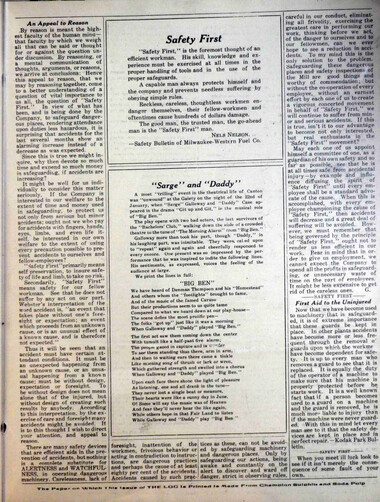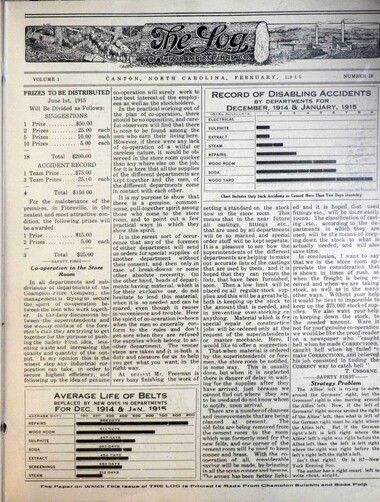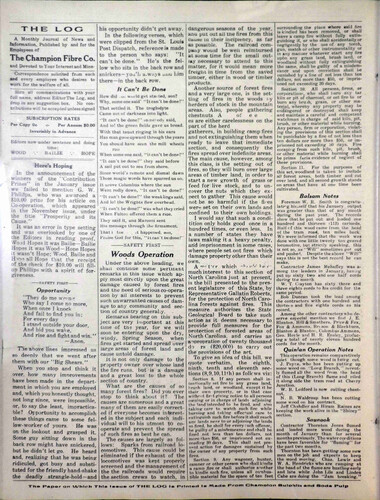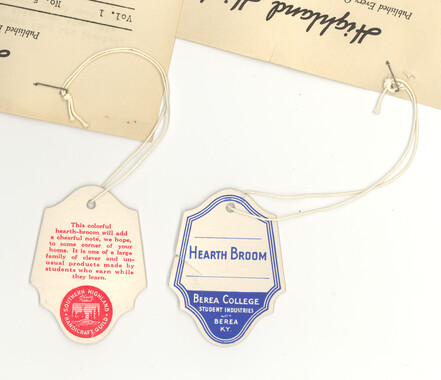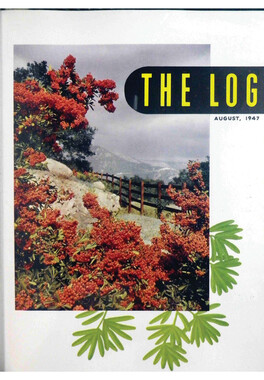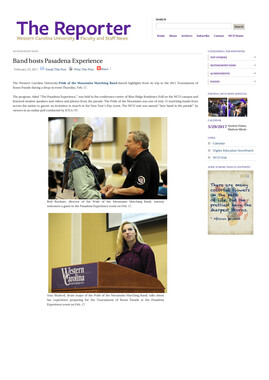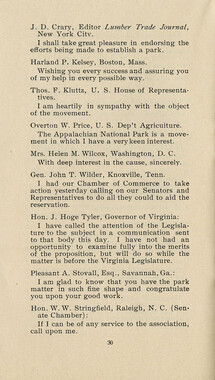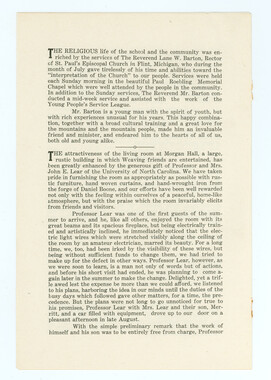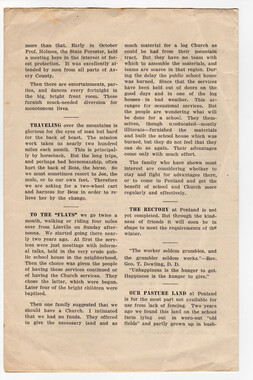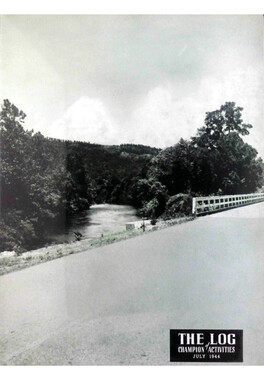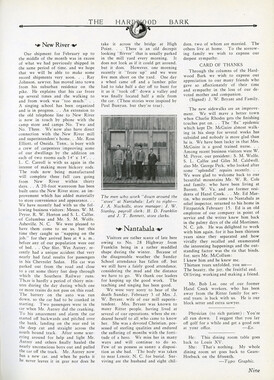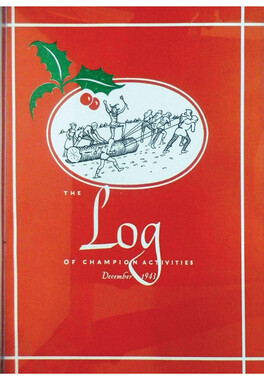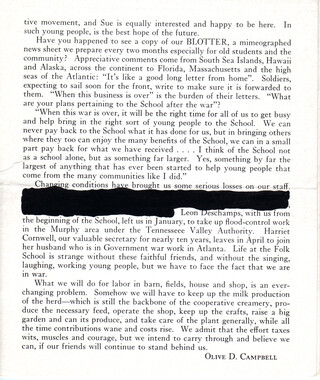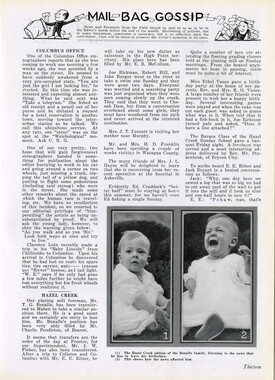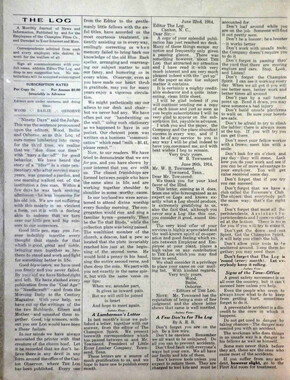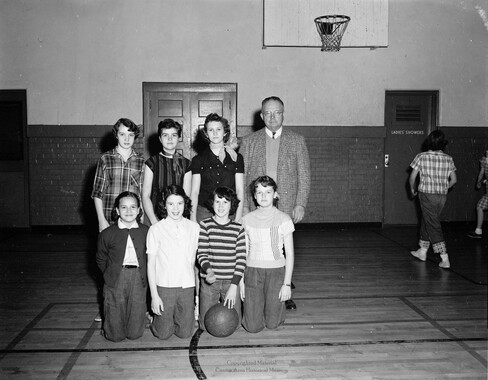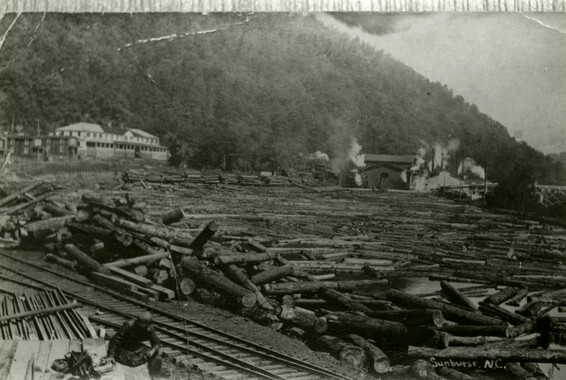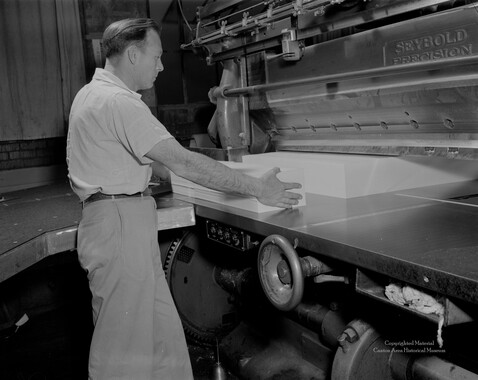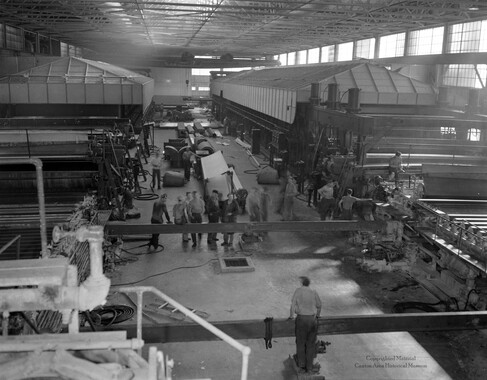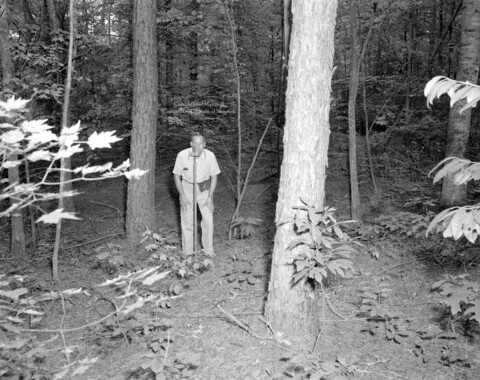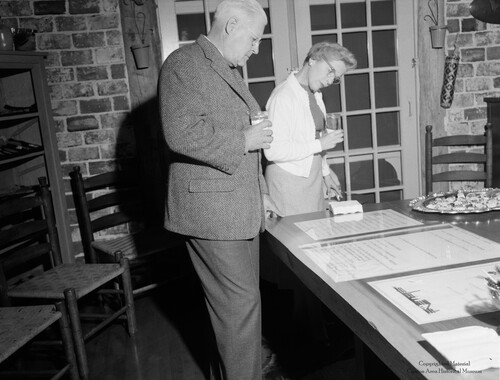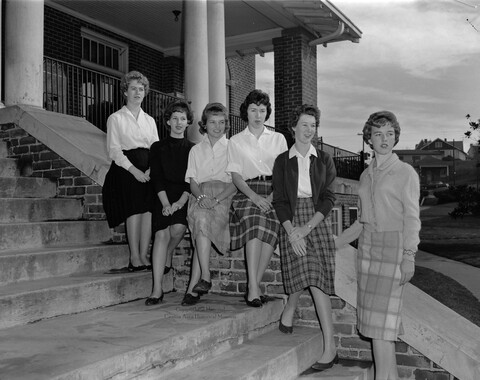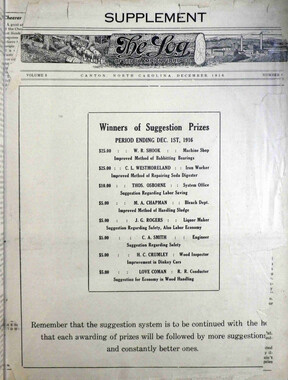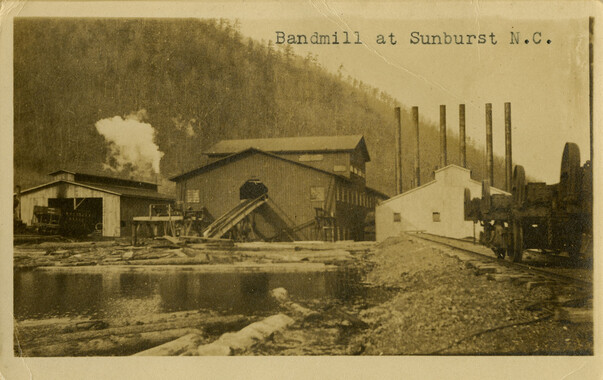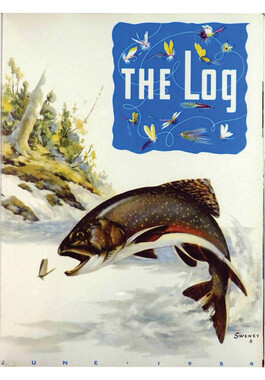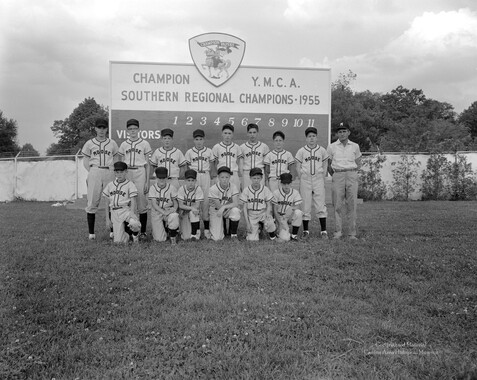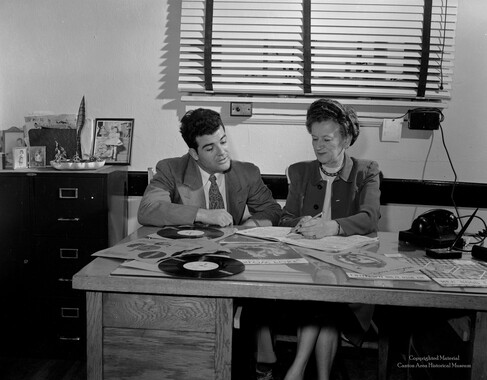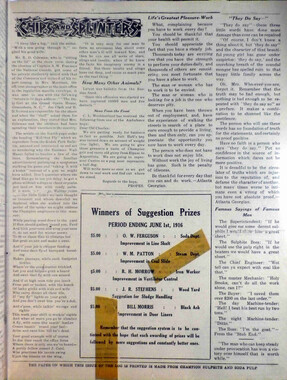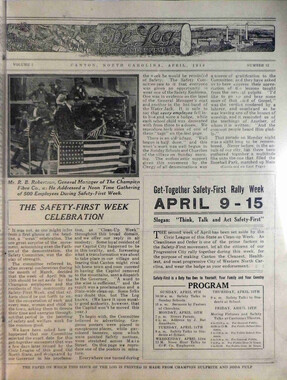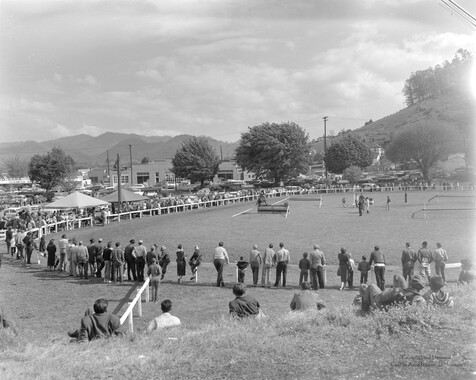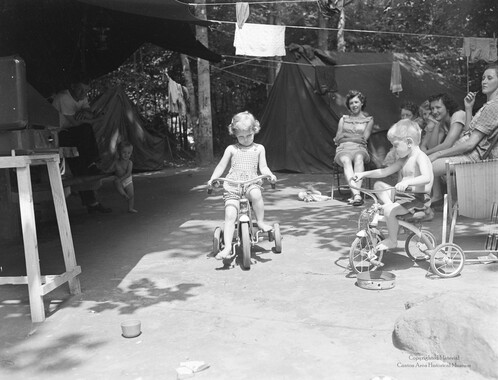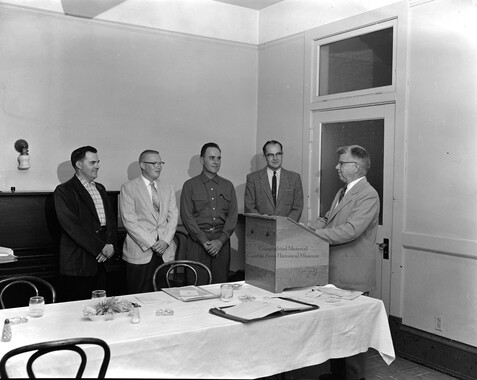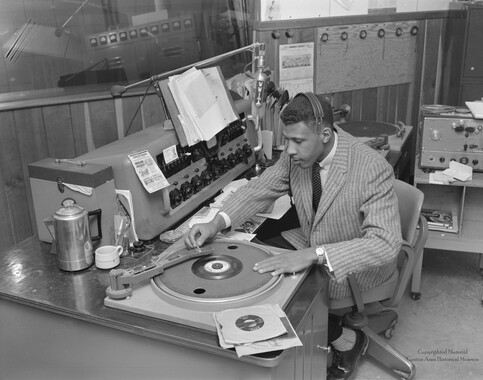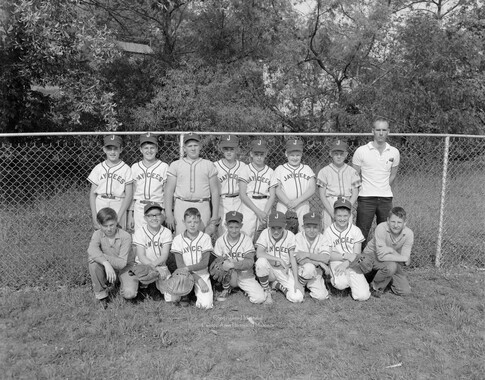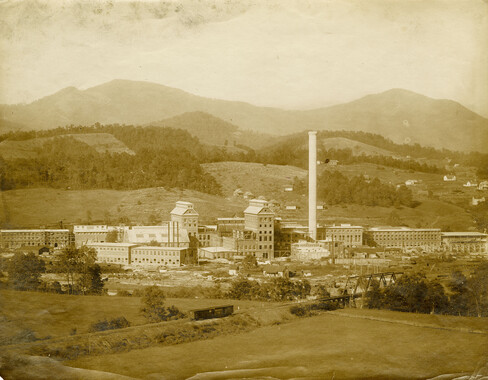Western Carolina University (21)
View all
- Canton Champion Fibre Company (2308)
- Cherokee Traditions (291)
- Civil War in Southern Appalachia (165)
- Craft Revival (1942)
- George Masa Collection (137)
- Great Smoky Mountains - A Park for America (2900)
- Highlights from Western Carolina University (422)
- Horace Kephart (973)
- Journeys Through Jackson (159)
- LGBTQIA+ Archive of Jackson County (85)
- Oral Histories of Western North Carolina (316)
- Picturing Appalachia (6797)
- Stories of Mountain Folk (413)
- Travel Western North Carolina (153)
- Western Carolina University Fine Art Museum Vitreograph Collection (129)
- Western Carolina University Herbarium (92)
- Western Carolina University: Making Memories (738)
- Western Carolina University Publications (2491)
- Western Carolina University Restricted Electronic Theses and Dissertations (146)
- Western North Carolina Regional Maps (71)
- World War II in Southern Appalachia (131)
University of North Carolina Asheville (6)
View all
- Allanstand Cottage Industries (62)
- Appalachian National Park Association (53)
- Bennett, Kelly, 1890-1974 (1463)
- Berry, Walter (76)
- Brasstown Carvers (40)
- Carver, George Washington, 1864?-1943 (26)
- Cathey, Joseph, 1803-1874 (1)
- Champion Fibre Company (233)
- Champion Paper and Fibre Company (297)
- Cherokee Indian Fair Association (16)
- Cherokee Language Program (22)
- Crowe, Amanda (40)
- Edmonston, Thomas Benton, 1842-1907 (7)
- Ensley, A. L. (Abraham Lincoln), 1865-1948 (275)
- Fromer, Irving Rhodes, 1913-1994 (70)
- George Butz (BFS 1907) (46)
- Goodrich, Frances Louisa (120)
- Grant, George Alexander, 1891-1964 (96)
- Heard, Marian Gladys (60)
- Kephart, Calvin, 1883-1969 (15)
- Kephart, Horace, 1862-1931 (313)
- Kephart, Laura, 1862-1954 (67)
- Laney, Gideon Thomas, 1889-1976 (439)
- Masa, George, 1881-1933 (61)
- McElhinney, William Julian, 1896-1953 (44)
- Niggli, Josephina, 1910-1983 (10)
- North Carolina Park Commission (105)
- Osborne, Kezia Stradley (9)
- Owens, Samuel Robert, 1918-1995 (11)
- Penland Weavers and Potters (36)
- Roberts, Vivienne (15)
- Roth, Albert, 1890-1974 (142)
- Schenck, Carl Alwin, 1868-1955 (1)
- Sherrill's Photography Studio (2565)
- Southern Highland Handicraft Guild (127)
- Southern Highlanders, Inc. (71)
- Stalcup, Jesse Bryson (46)
- Stearns, I. K. (213)
- Thompson, James Edward, 1880-1976 (226)
- United States. Indian Arts and Crafts Board (130)
- USFS (683)
- Vance, Zebulon Baird, 1830-1894 (1)
- Weaver, Zebulon, 1872-1948 (58)
- Western Carolina College (230)
- Western Carolina Teachers College (282)
- Western Carolina University (2008)
- Western Carolina University. Mountain Heritage Center (18)
- Whitman, Walt, 1819-1892 (10)
- Wilburn, Hiram Coleman, 1880-1967 (73)
- Williams, Isadora (3)
- Cain, Doreyl Ammons (0)
- Crittenden, Lorraine (0)
- Rhodes, Judy (0)
- Smith, Edward Clark (0)
- Appalachian Region, Southern (2940)
- Asheville (N.C.) (1944)
- Avery County (N.C.) (26)
- Blount County (Tenn.) (195)
- Buncombe County (N.C.) (1680)
- Cherokee County (N.C.) (283)
- Clay County (N.C.) (556)
- Graham County (N.C.) (238)
- Great Smoky Mountains National Park (N.C. and Tenn.) (525)
- Haywood County (N.C.) (3573)
- Henderson County (N.C.) (70)
- Jackson County (N.C.) (4919)
- Knox County (Tenn.) (35)
- Knoxville (Tenn.) (13)
- Lake Santeetlah (N.C.) (10)
- Macon County (N.C.) (421)
- Madison County (N.C.) (216)
- McDowell County (N.C.) (39)
- Mitchell County (N.C.) (135)
- Polk County (N.C.) (35)
- Qualla Boundary (982)
- Rutherford County (N.C.) (78)
- Swain County (N.C.) (2185)
- Transylvania County (N.C.) (270)
- Watauga County (N.C.) (12)
- Waynesville (N.C.) (86)
- Yancey County (N.C.) (72)
- Aerial Photographs (3)
- Aerial Views (60)
- Albums (books) (4)
- Articles (1)
- Artifacts (object Genre) (228)
- Bibliographies (1)
- Biography (general Genre) (2)
- Cards (information Artifacts) (38)
- Clippings (information Artifacts) (192)
- Copybooks (instructional Materials) (3)
- Crafts (art Genres) (622)
- Depictions (visual Works) (21)
- Design Drawings (1)
- Digital Moving Image Formats (2)
- Drawings (visual Works) (185)
- Envelopes (101)
- Exhibitions (events) (1)
- Facsimiles (reproductions) (1)
- Fiction (general Genre) (4)
- Financial Records (12)
- Fliers (printed Matter) (67)
- Glass Plate Negatives (381)
- Guidebooks (2)
- Internegatives (10)
- Interviews (817)
- Land Surveys (102)
- Letters (correspondence) (1045)
- Manuscripts (documents) (618)
- Maps (documents) (177)
- Memorandums (25)
- Minutes (administrative Records) (59)
- Negatives (photographs) (6090)
- Newsletters (1290)
- Newspapers (2)
- Notebooks (8)
- Occupation Currency (1)
- Paintings (visual Works) (1)
- Pen And Ink Drawings (1)
- Periodicals (193)
- Personal Narratives (10)
- Photographs (12976)
- Plans (maps) (1)
- Poetry (6)
- Portraits (4568)
- Postcards (329)
- Programs (documents) (181)
- Publications (documents) (2444)
- Questionnaires (65)
- Relief Prints (26)
- Sayings (literary Genre) (1)
- Scrapbooks (282)
- Sheet Music (2)
- Slides (photographs) (402)
- Songs (musical Compositions) (2)
- Sound Recordings (796)
- Specimens (92)
- Speeches (documents) (18)
- Tintypes (photographs) (8)
- Transcripts (324)
- Text Messages (0)
- A.L. Ensley Collection (275)
- Appalachian Industrial School Records (7)
- Appalachian National Park Association Records (336)
- Axley-Meroney Collection (2)
- Bayard Wootten Photograph Collection (20)
- Bethel Rural Community Organization Collection (7)
- Blumer Collection (5)
- C.W. Slagle Collection (20)
- Canton Area Historical Museum (2110)
- Carlos C. Campbell Collection (462)
- Cataloochee History Project (64)
- Cherokee Studies Collection (4)
- Daisy Dame Photograph Album (5)
- Daniel Boone VI Collection (1)
- Doris Ulmann Photograph Collection (112)
- Elizabeth H. Lasley Collection (1)
- Elizabeth Woolworth Szold Fleharty Collection (4)
- Frank Fry Collection (95)
- George Masa Collection (173)
- Gideon Laney Collection (452)
- Hazel Scarborough Collection (2)
- Hiram C. Wilburn Papers (28)
- Historic Photographs Collection (236)
- Horace Kephart Collection (861)
- Humbard Collection (33)
- Hunter and Weaver Families Collection (1)
- I. D. Blumenthal Collection (4)
- Isadora Williams Collection (4)
- Jesse Bryson Stalcup Collection (47)
- Jim Thompson Collection (224)
- John B. Battle Collection (7)
- John C. Campbell Folk School Records (80)
- John Parris Collection (6)
- Judaculla Rock project (2)
- Kelly Bennett Collection (1482)
- Love Family Papers (11)
- Major Wiley Parris Civil War Letters (3)
- Map Collection (12)
- McFee-Misemer Civil War Letters (34)
- Mountain Heritage Center Collection (4)
- Norburn - Robertson - Thomson Families Collection (44)
- Pauline Hood Collection (7)
- Pre-Guild Collection (2)
- Qualla Arts and Crafts Mutual Collection (12)
- R.A. Romanes Collection (681)
- Rosser H. Taylor Collection (1)
- Samuel Robert Owens Collection (94)
- Sara Madison Collection (144)
- Sherrill Studio Photo Collection (2558)
- Smoky Mountains Hiking Club Collection (616)
- Stories of Mountain Folk - Radio Programs (374)
- The Reporter, Western Carolina University (510)
- Venoy and Elizabeth Reed Collection (16)
- WCU Gender and Sexuality Oral History Project (32)
- WCU Mountain Heritage Center Oral Histories (25)
- WCU Oral History Collection - Mountain People, Mountain Lives (71)
- WCU Students Newspapers Collection (1923)
- Western North Carolina Tomorrow Black Oral History Project (69)
- William Williams Stringfield Collection (2)
- Zebulon Weaver Collection (109)
- African Americans (390)
- Appalachian Trail (35)
- Artisans (521)
- Cherokee art (84)
- Cherokee artists -- North Carolina (10)
- Cherokee language (21)
- Cherokee pottery (101)
- Cherokee women (208)
- Church buildings (190)
- Civilian Conservation Corps (U.S.) (111)
- College student newspapers and periodicals (2012)
- Dams (108)
- Dance (1023)
- Education (222)
- Floods (63)
- Folk music (1015)
- Forced removal, 1813-1903 (2)
- Forest conservation (220)
- Forests and forestry (1197)
- Gender nonconformity (4)
- Great Smoky Mountains National Park (N.C. and Tenn.) (181)
- Hunting (46)
- Landscape photography (25)
- Logging (119)
- Maps (83)
- Mines and mineral resources (9)
- North Carolina -- Maps (18)
- Paper industry (38)
- Postcards (255)
- Pottery (135)
- Railroad trains (72)
- Rural electrification -- North Carolina, Western (3)
- School integration -- Southern States (2)
- Segregation -- North Carolina, Western (5)
- Slavery (5)
- Sports (452)
- Storytelling (243)
- Waterfalls -- Great Smoky Mountains (N.C. and Tenn.) (66)
- Weaving -- Appalachian Region, Southern (280)
- Wood-carving -- Appalachian Region, Southern (328)
- World War, 1939-1945 (173)
The Log Vol. 1 No. 10
Item
Item’s are ‘child’ level descriptions to ‘parent’ objects, (e.g. one page of a whole book).
-
-
An Appeal to Reason By reason is meant the highest faculty of the human minu — that faculty by which we weigh all that can be said or thought for or against the question under discussion. By reasoning, or a mental communication of thoughts, arguments, or reasons, we arrive at conclusions: Hence this appeal to reason, that we may by reasoning together, come to a better understanding of a question of vital importance to us all, the question of "Safety First." In view of what has been, and is being done by the Company, to safeguard dangerous places, rendering attendance upon duties less hazardous, it is surprising that accidents for the last several months show an alarming increase instead of a decrease as was expected. Since this is true we might inquire, why then devote so much time and expend so much money in safeguarding, if accidents are increasing? It might be well for us individually to consider this matter seriously. If the Company is interested in our welfare to the extent of time and money used in safeguarding, to protect us not only from serious but minor accidents: ought not we who pay for accidents with fingers, hands, eyes, limbs, and even life itself, be interested in our own welfare to the extent of using every precaution possible to prevent accidents to ourselves and fellow-employees? "Safety First" primarily means self preservation, to insure safety of life and limb.totakenorisk. Secondarily, "Safety First" means safety for our fellow workman. See that he does not suffer by any act on our part. V\Vi.-r -r's interpretation of I he w ird accident is, "an event that takes place without one's foresight or expectation; an event which proceeds from an unknown cause, or is an unusual effect of a known cause, and is therefore not expected." Thus it will be seen that an accident must have certain attendant conditions. It must be an unexpected happening from an unknown cau.se, or an unusual happening from a known cause; must be without design, expectation or foresight. To be without design does not mean alone that of the injured, but without design of creating such results by anvhodv. According to this interpretation, by lite exercise of care and foresight many accidents might be avoided. It is to this thought I wish to direct your attention, and appeal to reason. There are many safety devices that are efficient aids in the prevention of accidents, but nothing is a r-omnlete substitute for ALERTNESS and WATCHFULNESS, in operating dangerous machinery. Carelessness, lack of Safety First "Safety First," is the foremost thought of an efficient workman. His skill, knowledge and experience must be exercised at all times in the proper handling of tools and in the use of the proper safeguards. A capable man always protects himself and the company and prevents needless suffering by obeying simple rules. Reckless, careless, thoughtless workmen endanger themselves, their fellow-workmen and oftentimes cause hundreds of dollars damage. The good man, the trusted man, the go-ahead man is the "Safety First" man. Nels Nelson. —Safety Bulletin of Milwaukee-Western Fuel Co, "Surge" and "Daddy" A most "trilling" event in the theatrical life of Canton was "unwound" at the Gaiety on the night of the 22nd of January, when "Sarge" Galloway and "Daddy" Case appeared in the drama "Git up and Git," in the musical role of "Big Ben." The play opens with two bad actors, the last survivors of the "Bachelors' Club," walking down the aisle of a crowded theatre to the tune of "The Morning Alarm" irom "Big Ben." Galloway more than took his part, though "Daddy," in his laughing part, was inimitable. They were, cal ed upon to "repeat" again and again and cheerfully responded to every encore. One present was so impressed by the performance that he was inspired to indite the following lines. His sentiments, as expressed, voices the feeling of the audience at large. We print the lines in full: "BIG BEN" We have heard of Denman Thompson and his "Homestead" And others whom the "footlights" brought to fame. And of the music of the famed Caruso But their productions seem to us quite tame Compared to what we heard down at our play-house— The scene de.fies the most prolific pen— The folks "got up" just like it was a morning When Galloway and "Daddy" played "Big Ben." The first act saw them coming down the center With tumult like a half-past five alarm; The people gazed in rapture and in v.""dcr To see them standing thus there, arm in arm, And then to waiting ears there came a tinkle Like morning song of thrush or lark or wren, Which gathered strength and swelled into a chorus When Galloway and "Daddy" played "Big Ben." Upon each face there shone the light of pleasure As listening, one and all drank in the tune— They never lost a single beat or measure, Their hearts were iike a sunny day in June. O! Some will say the music was of Heaven And fear they'll never hear the like again. While others hope in that Fair Land to listen While Galkiway and "Daddy" play "Big Ben " foresight, Inattention of theiticesas these, can not be avoid- workmen, frivolous behavior er ed by safeguarding machinery acting in contradiction to instruc-i and dangerous places. Only by tions, are dangerous practices; safeguarding our actions, being and perhaps the cause of at least j awake and constantly on the eighty per cent of the accidents. | alert to discover and ward off Accidents caused by such prac danger, strict in observing rules. careful in our conduct, eliminating all frivolity, exorcising the greatest care in perlotming our work, thinking before we act, of the danger to ourselves and to our fellow men, can we ever hope to see a reduction in accidents. To my mind this is the only solution to the problem Safeguarding these danger places and safety inspection at the Mill are good thing worthy of commendation; but without the co-operation of every employee, without an eartiett effort by each one of us to create a vigorous, concerted movement in behalf of "Safety First," we will continue to suffer from minor and serious accidents. If this is true, isn't it to our advantage to become not only hitei but real enthusiasts in the "Safety Firit" movement? May each one of us appoint himself a committee of one, as a guardian of his own safety and so far as possible, see that he is at all times safe from accidental injury — by exanple and influence diffusing the spirit of 'Safety First" until every employee shall be a standard advocate of the cause. When this is accomplished, with every employee championing the cause of "Safety First," then accidents will decrease and a great deal of suffering will be avoided. However, we must remember that being governed by the principle of "Safety First," ought not to render us less efficient in cur ork. Bear in mind that in order to give us employment, we cannnt expect the Company to spend all the profits in safeguard- , or unnecessary waste of time on the part of employees. ! It might be less expensive to get I rid of the careless ones. G. SAFETY FIRST First Aid to the Uninjured Now that we have become used to machinery that is safeguarded, it is of extreme importance that these guards be kept in place. In other plants accidents have become more or less frequent through the removal o guards upon which the workme have become dependent for safety. It is up to every man who removes a guard to see that it is replaced. It is equally the duty of the operator of a machine to make sure that his machine is properly protected before he starts work. It is a well known fact that if a person becomes used to a guard on a machine and the guard is removed, he is much mor<> liable to injury than if the machine were never guarded. With this in mind let every man see to it that the safety devices are kept in place and in perfect repair. - Kodak Park Bulletin. SAFETY FIRST When you meet ill luck look to see if it isn't merely the consequence of some fault of your own.
Object
Object’s are ‘parent’ level descriptions to ‘children’ items, (e.g. a book with pages).
-
Between 1914 and the late 1960s, the Champion Fibre Company published an internal newsletter, called The Log, to share news about the Canton mill, the community, and its employees. After 1940, news from the entire “Champion Family,” which included mills in Hamilton, Ohio; Houston, Texas and Sandersville, Georgia, was featured in each issue.
-
